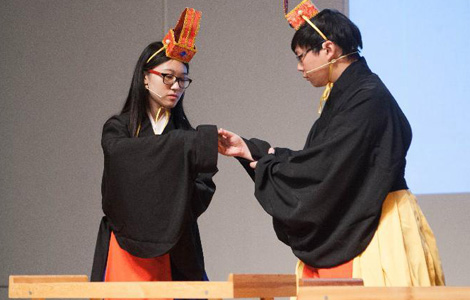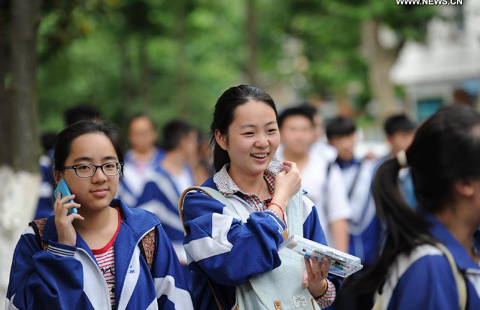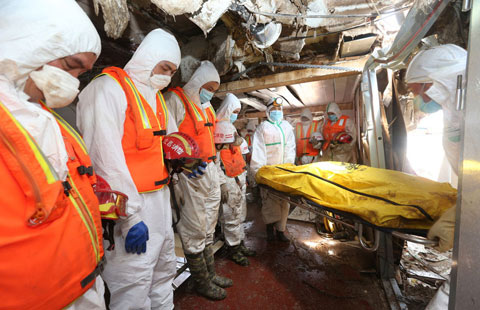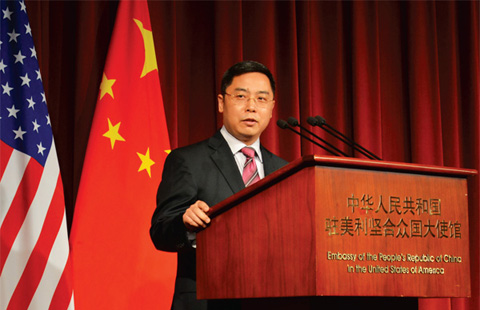To the pyramids
Updated: 2015-06-08 07:28
By Yang Feiyue(China Daily)
|
||||||||
Egypt's travel industry is enjoying a new influx of Chinese visitors who are drawn to the country's ancient charms with the help of the Belt and Road Initiative. Yang Feiyue reports.
China's Belt and Road Initiative is expected to inject new life into Egypt's tourism sector.
As a country that was once part of the Silk Road, Egypt is expected to see great improvement in relations with China, says Shaarawy Abu, tourism counselor with the Egyptian embassy in Beijing.
Cooperation between Egypt and China in improving visa processes and increasing air travel (commercial and charter flights) is expected to boost tourism, Abu says.
A growing number of Chinese tourists have been traveling to Egypt, drawn to its ancient history, the pyramids, deserts and Red Sea resorts.
In 2014, about 65,000 Chinese tourists traveled to Egypt, according to the Egyptian embassy in Beijing.
In the first four months of this year, 50,000 Chinese tourists traveled to Egypt, a significant increase from the same period last year.
The embassy estimates that 200,000 Chinese visitors will have traveled to Egypt by the end of this year.
Egypt has made serious efforts to woo Chinese tourists.
Last May, Egypt supported the "Silk Road steps to eco-culture", a program initiated by China Eco-Culture Association to carry forward eco-culture and spread the essence of Chinese culture, says Abu.
Participants in the program traveled to Egypt to hold cultural exhibitions and take photos.
The event helped boost bilateral cultural exchanges, officials say.
The Egyptian embassy plans to hold a photography exhibition in Beijing, named Egypt in Chinese Eyes, according to Abu.
President Abdel Fattah el-Sisi met with 25 top Chinese travel agencies during his visit to China in December 2014, and promised to offer convenient measures to attract Chinese tourists, says Egyptian Ambassador to China Magdy Amer.
A weeklong event featuring Chinese culture was held in Egypt's Hurghada in May, aiming to attract Chinese tourists.
The introduction of charter flights in February this year from Shanghai, Chengdu and Shenzhen to Egypt, in addition to commercial flights, will play a positive role in drawing more Chinese tourists to Egypt, says Abu.
"By 2020, we aspire to attract at least one million Chinese tourists per year," says press counselor Hoda Jadalla of the Egyptian embassy.
"There are a number of must-visit places in Egypt," Jadalla says.
The Pyramids of Giza, the Egyptian museum in Cairo, Abu Simbel or the west bank of Luxor are all places visitors must not miss on their first trip to the country, Jadalla says.
Many travelers fly directly to Upper Egypt to see Luxor and Aswan, she says.
The tourism office recommends watching a sound and light show at the pyramids, and visiting the Temple of Philae or Abu-Simbel, which tells the story of ancient Egyptian history.
Tourists can also enjoy safaris to the Western Desert Oases, the stunning Great Sand Sea and the Sinai desert.
The Colored Canyon, a natural wonder of the Sinai desert, is a maze of sandstone rocks in hues of yellow, purple, red, magenta and gold reaching up to 40 meters.
Last year, 200 Chinese tourists embarked on a safari trip to the Giza Pyramids and Bahariya oasis packed inside 60 cars.
Red Sea resorts that boast easy access to coral reefs are ideal for divers, who can visit Alexandria and the north coast to explore underwater ruins in the Mediterranean that date back to the golden age of the pharaohs and up to the reign of Cleopatra, according to the office.
"The best time to travel to Egypt is from September to June," says Dai Yu, marketing director for online travel giant Ctrip's tourism department.
"There are nonstop flights to Egypt from Beijing and Guangzhou and a one-way trip takes approximately 11 hours," she says.
A 10-day trip to Egypt in June-August costs about 10,000-12,000 yuan ($1,600-1,940) for each traveler on Ctrip.
"Getting a visa is easy," says Abu. "It will be easier for tourists to get a visa through a tourism company."
The Egyptian embassy in China usually issues tourist visas within three or four working days.
"Most Chinese tourists take a shine to Luxor, Aswan and the Nile, as well as various temples," says Mahmoud Sabaa, an Egyptian tour guide who speaks decent Chinese.
"Some of them will go to the Khan El-Khalili in Cairo to buy papyrus and spices," he says.
Tourists should abide by some local rules to ensure a smooth and pleasant journey.
The tourism office asks visitors to help protect local monuments, dress modestly and take their shoes off before entering a mosque.
Tourists shouldn't litter and follow rules on taking photos at sites.
Egypt's weather is very dry and it's easy to get dehydrated. The tourism office suggests tourists wear a hat and sunglasses, especially in summer.
Egypt has made special arrangements for Chinese tourists.
"There are many places of attraction for Chinese tourists and experienced guides who can speak Chinese fluently, as well as Chinese restaurants," says Abu.
"We have also started to celebrate the Chinese New Year in different places in Egypt, such as Cairo and Luxor."
Contact the writer at yangfeiyue@chinadaily.com.cn

 Peking University opens Chinese traditional art courses
Peking University opens Chinese traditional art courses
 National college entrance exam ends in most parts of China
National college entrance exam ends in most parts of China
 Rescuers mourn victims on seventh day since Eastern Star disaster
Rescuers mourn victims on seventh day since Eastern Star disaster
 Rescuers enter Eastern Star hull in search efforts
Rescuers enter Eastern Star hull in search efforts
 Gaokao held across China
Gaokao held across China
 Man sues actress for staring at him
Man sues actress for staring at him
 Students prepare to take national college entrance exams
Students prepare to take national college entrance exams
 Across America (May 29- June 4)
Across America (May 29- June 4)
Most Viewed
Editor's Picks

|

|

|

|

|

|
Today's Top News
China gives its yuan to Broadway
Questions remain unresolved in the cruise ship disaster
Escaped New York prisoners may have had help from staff
Memphis hospital adds new China affiliate
Police alerted over forbidden photo shoot
Heavyweight Zhang wins unanimous decision
China mourns Yangtze shipwreck victims as search continues
China signs $50m agreement with FAO to support developing countries
US Weekly

|

|






